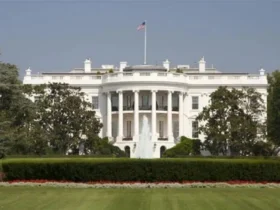The tokenization of real-world assets (RWA) is advancing more and more rapidly in Argentina, Brazil and the rest of Latin America. In this context, industry representatives analyzed the possibilities offered by cryptocurrency networks to democratize real estate transactions up to percentages of football player transfers.
During the Modular Summit 2024 Conference, held by the Ripio exchange in Sao Paulo, Brazil, the panel “RWA: Perspectives and opportunities for asset tokenization” was held.
As CriptoNoticias explained, RWA refers to the representation of real physical or financial assets in the form of tokens on a decentralized network. This technology allows traditional assets, such as stocks, bonds or real estate, to be traded on the digital market.
In this regard, Ariel Scaliter, co-founder of the Argentine fintech, Agrotoken, emphasized How smart contracts are transforming the way we interact in the real world“People want to interact with existing financial systems,” he explained, adding: “The world is moving towards tokenization much faster than people imagine.”

Agrotoken’s mission is to transform agricultural production such as wheat or soybeans into digital assets. “They can be exchanged for inputs, services and other assets, or used as a means of obtaining financing,” Scaliter added.
Along these lines, the businessman pointed out that, with tokenization, a biological asset or a property becomes a financial asset. “This asset could not be divided before. But today, thanks to tokenization, it can be used in a different way in every sense,” he explained. He also said:
“The point of tokenization is to solve problems that people have, not to create new ones to tokenize. It is very simple: tokenize the RWAs and then use them to make transactions.”
Ariel Scaliter, co-founder of Agrotoken.
The panel also included Andreas Blazoudakis from Netspaces, Solange Gueiros from Chainlink, Diego Consimo from XDC Network, and Valentin Jaremtchuk from Win Investment.
For his part, Jaremtchuk highlighted that thanks to tokenization, The football industry can be democratized and “people can invest in a player’s transfer legally” and he explained: “The clubs that train the athletes receive part of the money from the sale when they are transferred. This contract is called the solidarity mechanism and it is the one we digitalize.”
Win Investments was founded in Argentina and has a presence in Brazil. The company’s proposal is that people can buy credit participations, through tokens, on the money that the teams that train the players will receive, which is called a solidarity mechanism. For example, if Emiliano ‘Dibu’ Martínez is sold to Aston Villa in England to another team, the club that trains the footballer, in this case Independiente, receives a percentage of that transfer.
Thus, clubs collect part of this money in advance as financing, while those who hold the tokens obtain a profit, in the event of a transfer above the market value.

Along these lines, Solange Gueiros mentioned that thanks to the blockchain is this connection between technology and RWA possible?“This technology allows us to create an immutable record of the history of a product, from its origin to its final destination. By applying blockchain to agrotokens, we can guarantee that the asset exists and we bring that information in a reliable way that does not depend on a single agent to bring that information.”
Finally, the speakers agreed that connecting the real world with the digital world is a way to create “more transparent, efficient and sustainable systems over time.”






Leave a Reply